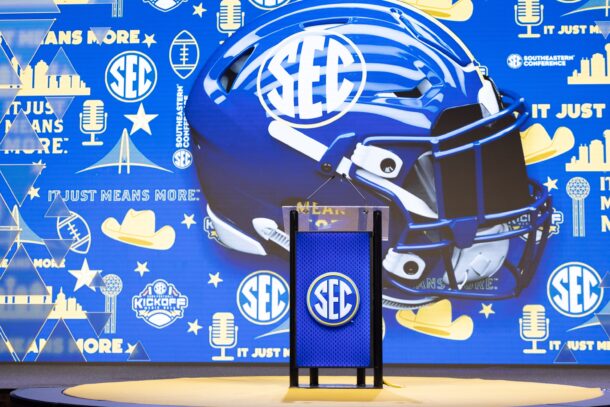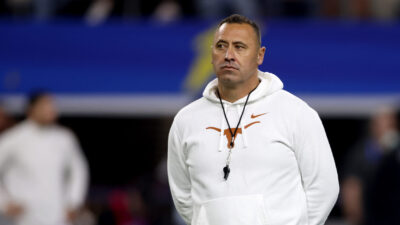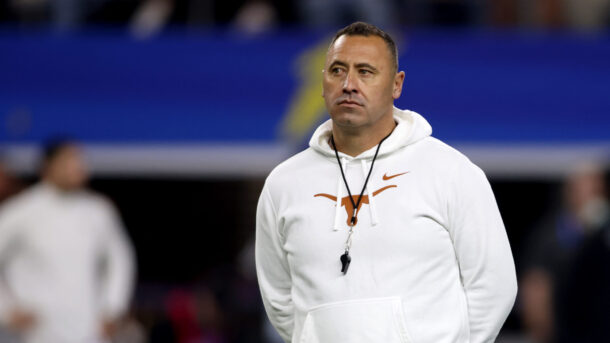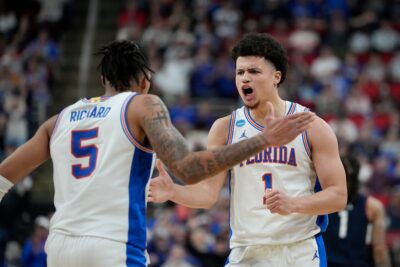Ad Disclosure
The NCAA has banned FanDuel and DraftKings from advertising during its championship events.
According to ESPN, the NCAA sent letters to DraftKings CEO Jason Robins and FanDuel executives Christian Genetski and Matt King that informed them they would not be allowed to run their ads at NCAA tournament events or on broadcasts of the events.
The events include the men’s and women’s basketball tournaments.
The NCAA’s bylaws have long included a section “that states we will not accept advertising from sports wagering entities” during championship events, the NCAA told ESPN.
The letter also asks FanDuel and DraftKings to notify the NCAA if any referees or officials have participated in any of their fantasy sports contests.
The question of whether or not daily fantasy sports should be considering gambling has been a hot topic recently. DraftKings, FanDuel and other similar sites have been operating under an exemption to the Unlawful Internet Gambling Enforcement Act of 2006, but that exemption could end soon. Last week, the Nevada Gaming Control Board ruled that daily fantasy sports sites like DraftKings and FanDuel are a form of gambling, and are illegal in that state unless the companies and their employees have Nevada state gambling licenses.
The NCAA considers all types of fantasy sports a form of gambling.
“NCAA member schools have defined sports wagering as putting something at risk – such as an entry fee – with the opportunity to win something in return, which includes fantasy league games. Because of this, student-athletes, coaches, administrators and national office staff may not participate in a fantasy league game with a paid entry fee,” Mark Strothkamp, the NCAA’s associate director of enforcement, told ESPN.com in a September interview.
The NCAA’s ban is the latest setback for the daily fantasy sports industry. It is also facing an FBI investigation, inquiries by the attorney generals in Massachusetts and New York, class action lawsuits filed in multiple states and multiple law enforcement investigations. The industry could also be subject to a Federal Trade Commission inquiry and a grand jury investigation in Florida in the near future.
“Such a meeting is inappropriate at this time in light of the fact that your enterprises appear to be under investigation by the Federal Bureau of Investigation and Congress,” NCAA executive vice president Mark Lewis wrote in the letter, “and several states and their attorneys general appear to be looking into your business platform, offering and policies for their compliance with the law.”
Lewis also made reference to an Aug. 27 letter from NCAA president Mark Emmert, 10 FBS conference commissioners and the student leader of the Division I student-athlete advisory committee to DraftKings and FanDuel. That letter asked the companies to stop offering fantasy sports games on college sports events, “because they were inconsistent with our values, by-laws, rules and interpretations regarding sports wagering, as well as possibly a violation of UIEGA (sic) and PAPSA (sic), and various state laws.”
“It seems that we are not alone in our views in that regard,” Lewis wrote in Tuesday’s letter. “We repeat that demand and ask that you please provide a written response immediately to our request that you discontinue the offering of fantasy games related to college sport.”
FanDuel declined to comment when contacted by ESPN on Wednesday morning. DraftKings could not be reached for comment.




